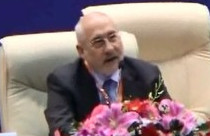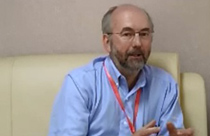
. > FOCUS > URBANIZATION
Forum explores China’s new-type urbanization
Author : ZHANG WEI Source : Chinese Social Sciences Today 2019-06-20
Experts shed light on China’s new-type urbanization at the annual conference of China’s Hundred Experts City Forum in Beijing in early June.
The conference, co-hosted by the Chinese Academy of Social Sciences (CASS), the Chinese Academy of Sciences (CAS) and the Chinese Academy of Engineering (CAE), focused on an ideal model for cities that is sustainable, smart and people-oriented.
Ding Zhongli, the vice president of CAS, pointed out that urbanization is still deepening, and while the modern city promotes social prosperity and convenience, it also brings such problems as traffic congestion, environmental pollution, and polarization between the rich and the poor, which compels people to continue to imagine and look forward to the city of the future.
Although people have different views on the ideal city, it is generally recognized that a city is beautiful when ecological, livable when smart, and rich when people-oriented, Ding said.
Xie Fuzhan, CASS president and secretary of the leading Party members’ group, pointed out that urbanization is the only path to modernization. Urbanization and industrialization are mutually beneficial and constitute the two major engines of modernization.
In just four decades, China has completed the urbanization process that took Western countries two centuries and has embarked on the road of urbanization with Chinese characteristics. This is a miracle in the history of human development, Xie said. Urbanization will still be an important driving force for economic development, but its pattern will be different from that in the past 40 years.
Its direction is high-level urbanization, and the key is the coordination of new-type industrialization as the main driving force, informationization as a fusing agent, urbanization as a platform, and agricultural modernization as the fundamental support, Xie continued. These four elements are closely related, inseparable and mutually reinforcing. Deepening reform is the key to promoting high-level urbanization, coordinating the four elements and facilitating the high-quality development of China’s economy.
Since the reform and opening up, China’s urbanization process has shown the characteristics of large scale, high speed and wide coverage, said Wu Liangyong, CAS and CAE Academician. We must consciously develop the science of human settlement and keep it people-oriented. It is necessary to construct an orderly space and a livable environment and to break through the original professional divisions and limitations.
With comprehensive and integrated thinking, we will initially establish spatial planning and design methods along with practical models focused on the settlement environment. We need to provide a solid scientific foundation for the establishment of a national planning system, including a national spatial planning system, Wu said.
China’s digital economy is undergoing intelligent transformation. Pan Yunhe, CAE Academician and former CAE executive vice president, said that the economy’s intelligent transformation needs to consider five aspects, namely, the intelligentization of products, the intelligent operation of enterprises, the network platform of the block economy, the intelligentization of urban economic ecology, and the co-evolution of cities and the economy.
In order to build a smart city, Pan said, China must complete urbanization and industrialization along with urban greening and rural modernization.
Lu Dadao, CAS Academician and a research fellow at CAS’s Institute of Geographic Sciences and Natural Resources Research, said that for urban planning, key industries should be developed, including big data and new-generation information technology, intelligent manufacturing and high-end equipment, biomedicine, advanced materials, modern logistics, medical and health care, cultural tourism, and industrial finance. Under the guidance of a forward-looking plan, we will gradually realize a comprehensive transformation and promote the high-quality development of the urban economy.
In the critical period of China’s urbanization transformation, new urbanization construction needs further adjustment in terms of the quality of urban development and the scale and spatial layout, said Zhang Xiaoming, a research fellow at CASS. In the process of urbanization transformation and cultural development, we must reflect on the history of urbanization development with a vision for its future, and we must realize the transformation of urbanization first from hard growth to soft growth and then to smart growth.
(Edited by Jiang Hong)
Interview with Wang Gungwu on significance of studying overseas Chinese
Wang Gungwu is a distinguished Australian historian who studies overseas Chinese. He currently works at the Faculty o...
-
On the rat/mouse of the zodiac
2020-02-20
-
Regional development calls for Huaihe culture’s soft power
2020-01-10
-
Archaeological discoveries unveil Maritime Silk Road
2020-01-06
-
China’s industrial art printing
2019-12-10
-
Yue-Gan Ancient Road: A journey into Hakka history
2019-05-13
-
The Lantern Festival in Dream of the Red Chamber
2019-02-18













 2011-2013 by www.cssn.cn. All Rights Reserved
2011-2013 by www.cssn.cn. All Rights Reserved